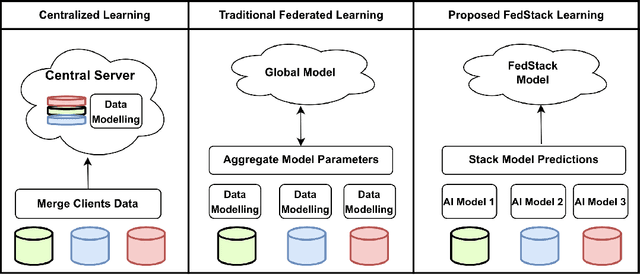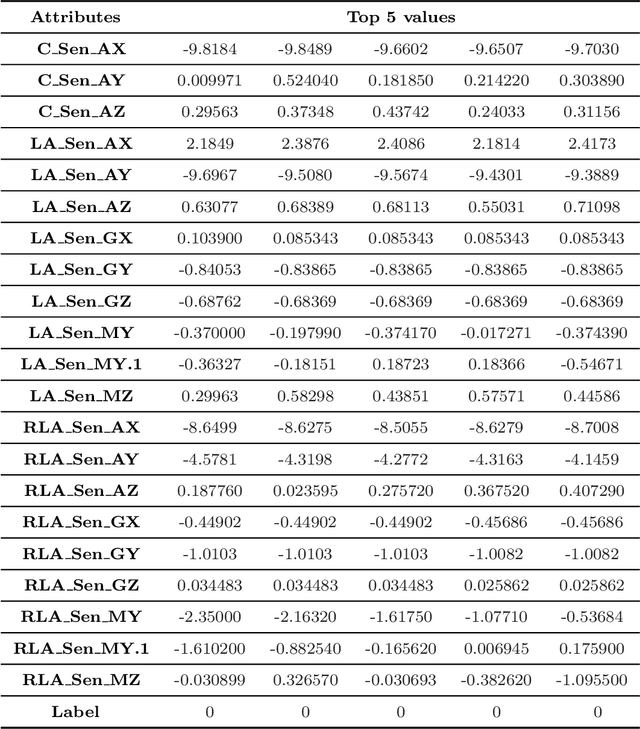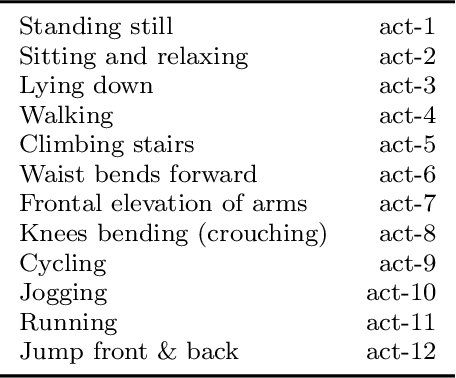FedStack: Personalized activity monitoring using stacked federated learning
Paper and Code
Sep 27, 2022



Recent advances in remote patient monitoring (RPM) systems can recognize various human activities to measure vital signs, including subtle motions from superficial vessels. There is a growing interest in applying artificial intelligence (AI) to this area of healthcare by addressing known limitations and challenges such as predicting and classifying vital signs and physical movements, which are considered crucial tasks. Federated learning is a relatively new AI technique designed to enhance data privacy by decentralizing traditional machine learning modeling. However, traditional federated learning requires identical architectural models to be trained across the local clients and global servers. This limits global model architecture due to the lack of local models heterogeneity. To overcome this, a novel federated learning architecture, FedStack, which supports ensembling heterogeneous architectural client models was proposed in this study. This work offers a protected privacy system for hospitalized in-patients in a decentralized approach and identifies optimum sensor placement. The proposed architecture was applied to a mobile health sensor benchmark dataset from 10 different subjects to classify 12 routine activities. Three AI models, ANN, CNN, and Bi-LSTM were trained on individual subject data. The federated learning architecture was applied to these models to build local and global models capable of state of the art performances. The local CNN model outperformed ANN and Bi-LSTM models on each subject data. Our proposed work has demonstrated better performance for heterogeneous stacking of the local models compared to homogeneous stacking. This work sets the stage to build an enhanced RPM system that incorporates client privacy to assist with clinical observations for patients in an acute mental health facility and ultimately help to prevent unexpected death.
 Add to Chrome
Add to Chrome Add to Firefox
Add to Firefox Add to Edge
Add to Edge